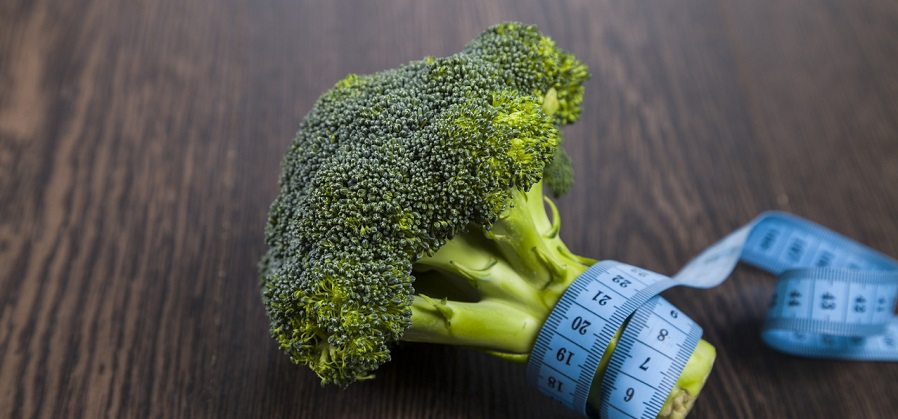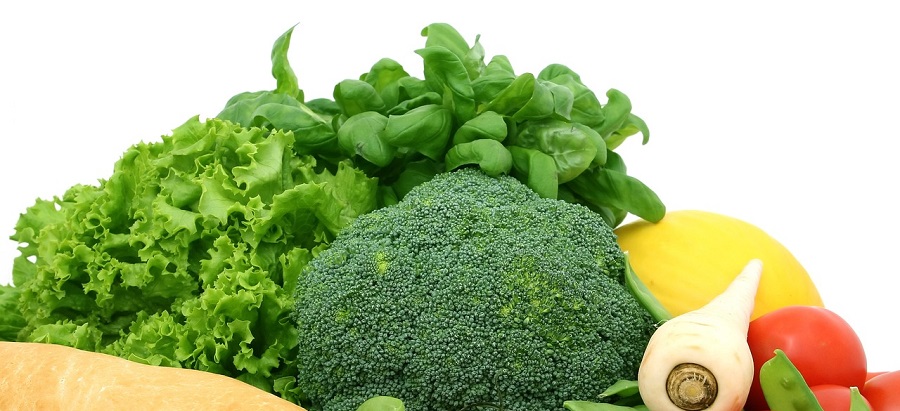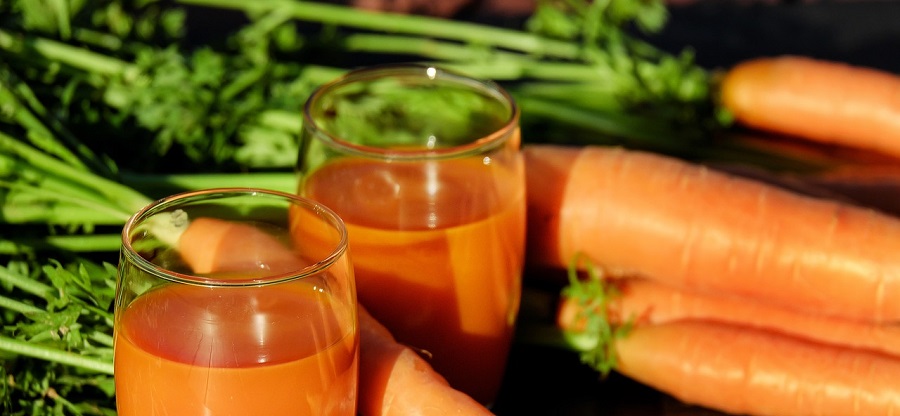How does broccoli help with weight loss?
Broccoli can help with weight loss in several ways.
First, broccoli is a low-calorie food that is high in fiber, which means that it can help you feel full and satisfied with fewer calories, making it easier to stick to a calorie-controlled diet.
Second, broccoli is also low in fat and carbohydrates, which are two macronutrients that can contribute to weight gain when consumed in excess.
Third, broccoli is a good source of vitamins, minerals, and antioxidants that support overall health and may help to reduce inflammation, which can contribute to weight gain and make it harder to lose weight.
Finally, some studies have suggested that certain compounds found in broccoli, such as sulforaphane, may help to reduce the accumulation of fat in the body and improve insulin sensitivity, which can also support weight loss efforts.
Overall, while broccoli is not a magical weight loss food, it is a nutritious and low-calorie addition to a healthy, balanced diet that may help to support weight loss efforts when combined with other healthy habits.
What are some low-calorie ways to prepare broccoli for weight loss?
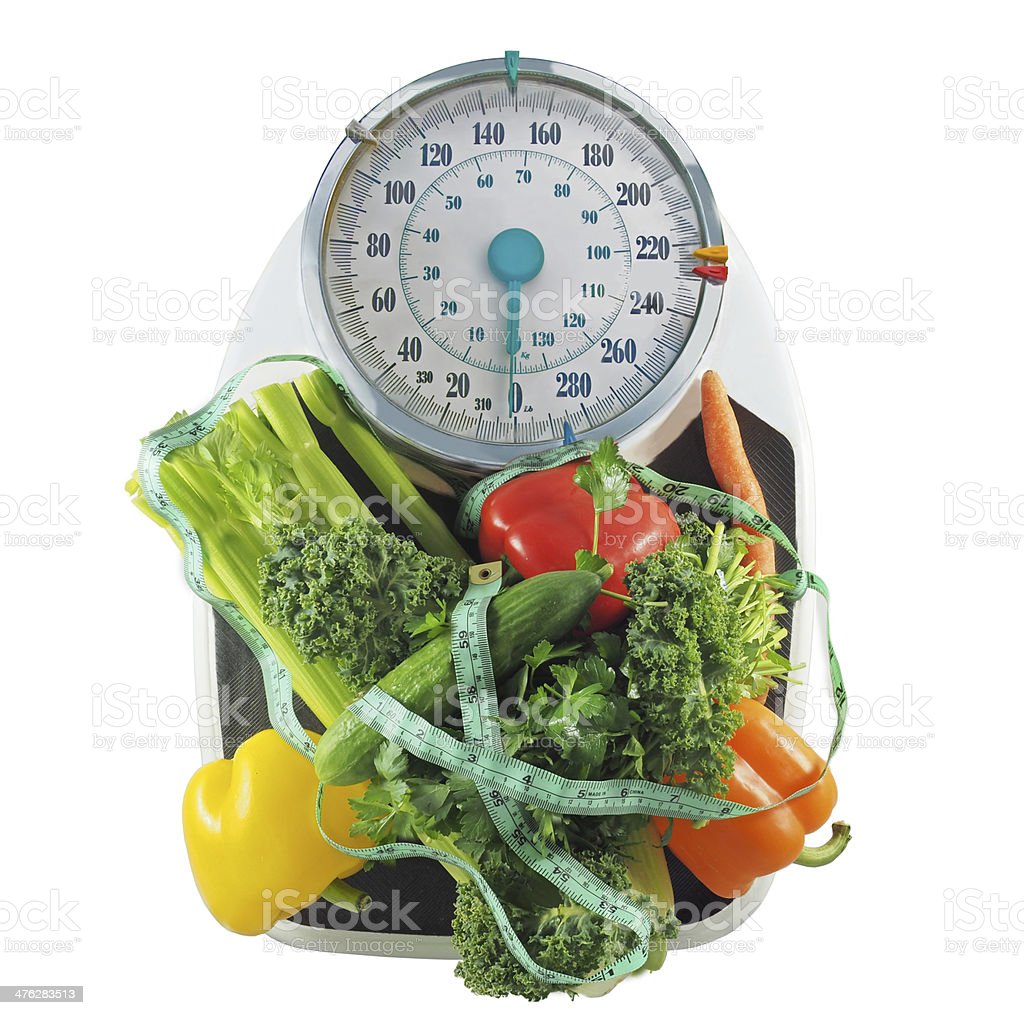
There are several low-calorie ways to prepare broccoli that can help you incorporate this nutritious vegetable into your diet for weight loss. Here are a few ideas:
Steamed Broccoli: Steaming broccoli is a simple and healthy way to prepare it while keeping the calorie count low. Simply place the broccoli in a steamer basket over boiling water and cook for 5-7 minutes until tender.
Roasted Broccoli: Roasting broccoli is another tasty way to enjoy it without adding too many calories. Simply toss broccoli florets with a small amount of olive oil and seasonings like garlic, salt, and pepper, and roast in the oven for 15-20 minutes at 400°F until tender and lightly browned.
Broccoli Salad: A simple broccoli salad can be a healthy and filling meal or side dish. Toss chopped broccoli with a light dressing made with lemon juice, olive oil, and vinegar, and add some sliced almonds, cranberries, or other toppings for extra flavor.
Broccoli Soup: Broccoli soup can be a satisfying and low-calorie meal, especially if you use low-fat milk or vegetable broth as the base. Simply sauté some onions and garlic in a pot, add chopped broccoli, and simmer until tender. Then, puree the mixture until smooth and add some seasoning and a splash of low-fat milk or cream, if desired.
Stir-fry: Broccoli is a great addition to stir-fries, which can be a healthy and flavorful way to prepare a variety of vegetables and protein sources. Simply stir-fry broccoli with other veggies and a lean protein like chicken or tofu, and season with soy sauce, ginger, and other seasonings for a low-calorie meal.
Is broccoli a good source of fiber for weight loss?
Yes, broccoli is a good source of fiber, which can be beneficial for weight loss.
One cup (91 grams) of raw broccoli contains about 2.4 grams of fiber, which is about 10% of the recommended daily intake for adults. Fiber is a type of carbohydrate that is not fully digested by the body and therefore adds bulk to the diet without adding many calories.
Fiber can help with weight loss in several ways. First, it helps to increase feelings of fullness and satiety, which can make it easier to stick to a calorie-controlled diet. Second, fiber can slow down the digestion and absorption of carbohydrates, which can help to regulate blood sugar levels and prevent spikes and crashes in energy levels. Finally, fiber can help to feed the beneficial bacteria in the gut, which may help to improve digestion and overall health.
In addition to broccoli, other good sources of fiber include other vegetables, fruits, legumes, whole grains, and nuts and seeds. It is important to consume a variety of fiber-rich foods as part of a healthy, balanced diet for optimal health and weight loss.
How does the nutrient profile of broccoli make it a good food for weight loss?
Broccoli is a good food for weight loss due to its nutrient profile, which is low in calories but high in essential vitamins, minerals, and other nutrients.
Here are some of the key nutrients found in broccoli that make it a good food for weight loss:
Low in Calories: One cup (91 grams) of raw broccoli contains only about 31 calories, which means it is a low-calorie food that can help you feel full and satisfied without consuming many calories.
High in Fiber: As mentioned earlier, broccoli is a good source of fiber, which can help you feel full and satisfied while consuming fewer calories.
High in Vitamins and Minerals: Broccoli is a good source of several essential vitamins and minerals, including vitamin C, vitamin K, folate, and potassium. These nutrients are important for overall health and can support weight loss by promoting healthy bodily functions and metabolism.
Low in Fat: Broccoli is a low-fat food, which means it can be a good choice for people who are trying to reduce their overall calorie and fat intake.
Rich in Antioxidants: Broccoli is also rich in antioxidants like sulforaphane, which may help to reduce inflammation and oxidative stress in the body, both of which can contribute to weight gain.
Overall, the nutrient profile of broccoli makes it a healthy and low-calorie food that can support weight loss when consumed as part of a balanced diet.
Can broccoli help regulate blood sugar levels and aid in weight loss?
Yes, broccoli can help regulate blood sugar levels and aid in weight loss.
Broccoli is a good source of fiber, which can help slow down the absorption of carbohydrates and regulate blood sugar levels. Fiber also helps to promote feelings of fullness and satiety, which can prevent overeating and aid in weight loss.
Additionally, broccoli contains sulforaphane, a compound that has been shown to have anti-inflammatory properties and may help regulate blood sugar levels. A study published in the journal Science Translational Medicine found that sulforaphane reduced fasting blood glucose levels in participants with type 2 diabetes.
Furthermore, broccoli is a low-calorie food that can be used to replace higher calorie foods in the diet, which can lead to a calorie deficit and promote weight loss.
It is important to note that while broccoli can be beneficial for blood sugar regulation and weight loss, it should be consumed as part of a healthy, balanced diet that includes a variety of nutrient-dense foods. A registered dietitian can help develop a personalized nutrition plan that includes broccoli and other foods that support your health and weight loss goals.
What are some other vegetables that are good for weight loss, and how do they compare to broccoli?
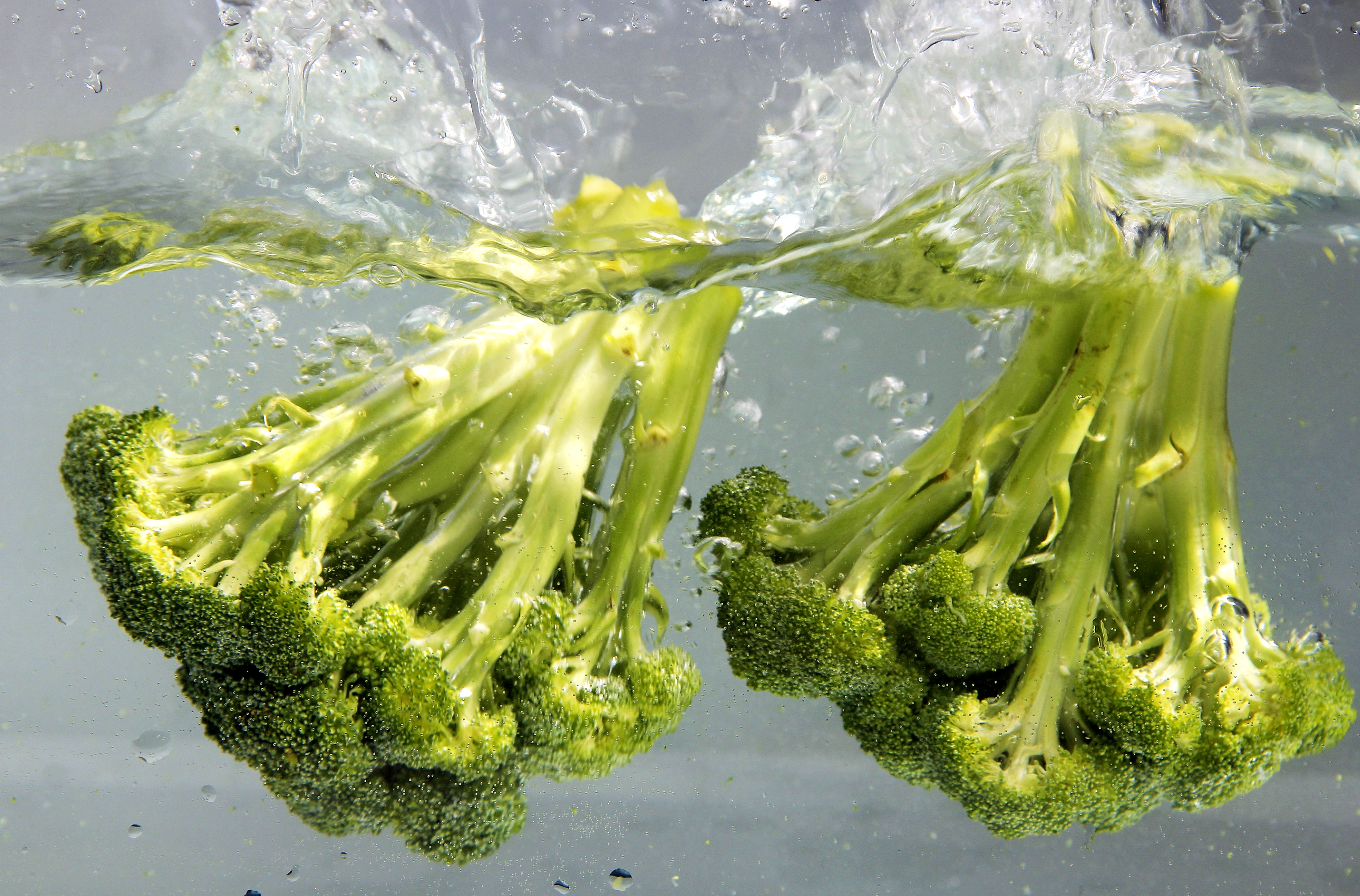
There are many vegetables that are good for weight loss, and they can be compared to broccoli in terms of their nutrient content and potential benefits for weight loss. Here are some examples:
Spinach: Spinach is a low-calorie, nutrient-dense vegetable that is high in fiber, vitamins, and minerals. One cup of cooked spinach contains only 41 calories and is a good source of iron, calcium, and vitamin A.
Cauliflower: Cauliflower is another low-calorie vegetable that is high in fiber and vitamins. One cup of cooked cauliflower contains only 28 calories and is a good source of vitamin C and folate.
Brussels Sprouts: Brussels sprouts are a cruciferous vegetable that is high in fiber and antioxidants. One cup of cooked Brussels sprouts contains only 56 calories and is a good source of vitamin C, vitamin K, and folate.
Carrots: Carrots are a root vegetable that is high in fiber and beta-carotene. One cup of raw carrots contains only 52 calories and is a good source of vitamin A.
Bell Peppers: Bell peppers are a low-calorie vegetable that is high in fiber and vitamin C. One cup of raw bell peppers contains only 46 calories and is a good source of vitamin A and potassium.
Compared to broccoli, these vegetables are all low in calories and high in fiber, vitamins, and minerals. They can all be incorporated into a healthy, balanced diet for weight loss and overall health. The key is to consume a variety of vegetables and other nutrient-dense foods to ensure you are getting all of the nutrients your body needs to function properly.
Is it possible to eat too much broccoli when trying to lose weight?
While broccoli is a healthy food that can support weight loss, it is possible to eat too much broccoli when trying to lose weight. Eating too much of any food, even healthy foods, can lead to weight gain.
Broccoli is low in calories and high in fiber, which means it can be a filling and satisfying addition to a weight loss diet. However, it is important to maintain a balanced diet that includes a variety of nutrient-dense foods to ensure that you are getting all of the nutrients your body needs.
In addition, some people may experience digestive discomfort or bloating if they consume too much broccoli, particularly if they have a sensitive digestive system. It is recommended to gradually increase your intake of broccoli and other high-fiber foods to allow your body to adjust.
Overall, while it is unlikely that eating too much broccoli alone will lead to weight gain, it is important to consume a balanced diet and be mindful of portion sizes when trying to lose weight. A registered dietitian can help develop a personalized nutrition plan that includes broccoli and other healthy foods that support your weight loss goals.
What are some ways to incorporate more broccoli into your diet if you don't like the taste of it?
If you don't like the taste of broccoli, there are still ways to incorporate it into your diet. Here are some suggestions:
Roast it: Roasting broccoli can bring out a nutty, caramelized flavor that may be more appealing than the taste of boiled or steamed broccoli. Simply toss broccoli florets with olive oil, salt, and pepper, and roast in the oven at 400°F for 15-20 minutes.
Blend it: You can also blend broccoli into smoothies with other ingredients such as fruits, Greek yogurt, and almond milk. This can mask the taste of broccoli while still allowing you to reap its nutritional benefits.
Add it to soups: Broccoli can be added to soups, such as broccoli cheddar soup or vegetable soup, to add flavor and nutrients.
Mix it into pasta dishes: Broccoli can be added to pasta dishes, such as spaghetti with garlic and broccoli or broccoli pesto pasta, to add texture and flavor.
Use it as a pizza topping: Broccoli can be used as a topping on pizza, either fresh or roasted, along with other vegetables and cheese.
Make it into a snack: Broccoli can be turned into a tasty snack by roasting it and serving it with a dip, such as hummus or Greek yogurt dip.
Experiment with spices and seasonings: You can also experiment with different spices and seasonings to enhance the flavor of broccoli. Try adding garlic, ginger, cumin, or chili flakes to your broccoli dishes for a flavorful kick.
Overall, there are many ways to incorporate broccoli into your diet, even if you don't like the taste of it. By trying out different preparation methods and flavor combinations, you may find that you enjoy broccoli more than you thought.
Are there any potential downsides to eating broccoli for weight loss?
While broccoli is a nutritious food that can support weight loss, there are some potential downsides to consider.
Digestive discomfort: Broccoli is a cruciferous vegetable that contains a compound called raffinose, which can cause gas and bloating in some people. Eating too much broccoli too quickly can lead to digestive discomfort, so it's important to gradually increase your intake of broccoli and other high-fiber foods.
Thyroid function: Broccoli contains a compound called goitrin, which can interfere with thyroid function if consumed in very large amounts. However, it would take a very high intake of raw broccoli to cause a significant impact on thyroid function. Cooking broccoli can reduce the amount of goitrin present, making it less of a concern.
Oxalates: Broccoli is also high in oxalates, which can contribute to the formation of kidney stones in some people. However, this is rare and is typically only a concern for people who have a history of kidney stones or who are at a higher risk of developing them.
Nutrient deficiencies: While broccoli is a nutritious food, relying too heavily on it as a primary source of nutrients can lead to nutrient deficiencies. It's important to consume a variety of nutrient-dense foods to ensure you are getting all of the nutrients your body needs.
Overall, these potential downsides to eating broccoli for weight loss are relatively minor and can be mitigated by consuming broccoli in moderation as part of a balanced diet. If you have concerns about how much broccoli you should be consuming, speak to a registered dietitian who can provide personalized nutrition advice based on your individual needs and health history.
